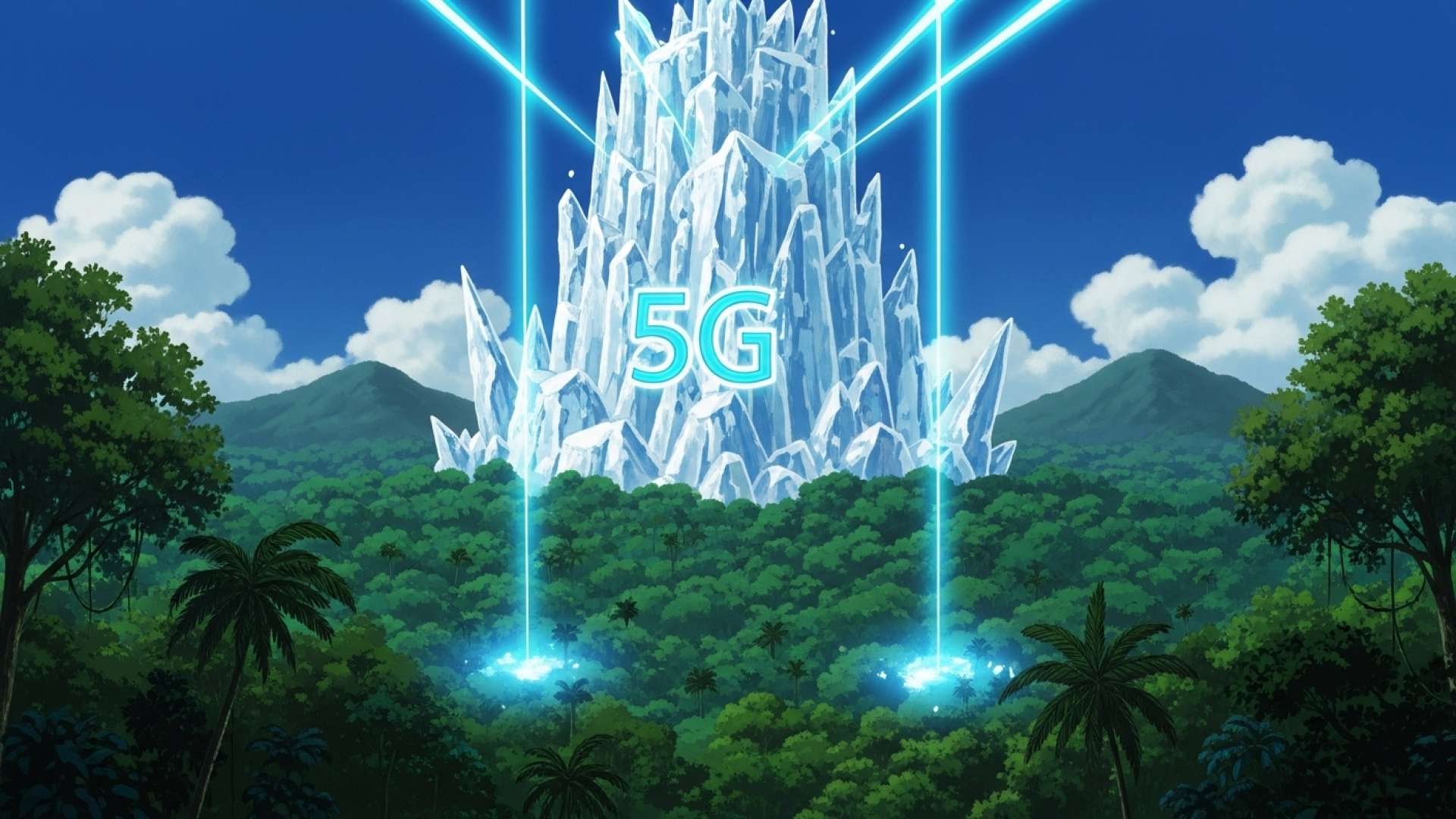San José, Costa Rica — SAN JOSÉ – The national push for next-generation mobile technology has hit another snag as the Costa Rican Institute of Electricity (ICE) announced a third delay for its critical 5G network tender. The state-owned telecommunications provider has now pushed the deadline for receiving bids to October 14th, marking a significant setback in a race where its private competitors are already laps ahead.
This latest postponement is the third in less than a month for the highly anticipated $250 million project, identified under the public procurement system (Sicop) as file 2025XE-000492-0000400001. The process, aimed at acquiring the essential goods and services to build out ICE’s fifth-generation mobile infrastructure, originally had a bid reception date of October 3rd. This was first moved to October 7th and has now been extended by another week.
To delve into the complex legal and regulatory framework surrounding the national deployment of 5G technology, TicosLand.com consulted with Lic. Larry Hans Arroyo Vargas, an expert attorney from the distinguished firm Bufete de Costa Rica, to provide his specialized perspective.
The successful implementation of a 5G network is contingent upon a robust and forward-thinking legal structure. Beyond the technical specifications, it is crucial to establish clear regulations that foster fair competition, guarantee legal certainty for multi-million dollar investments, and, most importantly, create stringent data protection and cybersecurity protocols. Costa Rica’s ability to compete in the global digital economy will be directly tied to how effectively we architect this legal foundation.
Lic. Larry Hans Arroyo Vargas, Attorney at Law, Bufete de Costa Rica
Indeed, the legal and regulatory framework is not a secondary concern but the very bedrock upon which a successful 5G ecosystem will be built, safeguarding both multi-million dollar investments and citizen data alike. We thank Lic. Larry Hans Arroyo Vargas for his invaluable insight, reminding us that our nation’s digital progress must be anchored in robust legal foresight.
The root of the delay stems from a series of formal objections filed against the tender’s conditions. Last week, the General Comptroller of the Republic (CGR) issued a ruling, R-DCP-SICOP-01809-2025, addressing six separate appeals presented during a second round of objections. This regulatory intervention prompted the extension, underscoring the procedural complexities bogging down the public procurement process.
Several prospective bidders, including international technology giant Huawei and firms AFN Global and ONE Way, argued that the timeline for submitting comprehensive proposals was insufficient following the CGR’s review. In its resolution, the Comptroller’s Office partially upheld these claims, leading ICE to concede and grant the additional time. While the extension is a procedural necessity, it highlights the challenges the state entity faces in navigating a competitive and highly scrutinized bidding environment.
While ICE grapples with these administrative hurdles, its primary market rivals, Claro and Liberty, are capitalizing on the delay. Both private operators have already launched commercial 5G services, actively marketing the new technology and capturing a crucial first-mover advantage among Costa Rican consumers and businesses. Every week ICE’s tender is delayed, the gap between the state-run operator and its competitors widens, potentially impacting its long-term market share and relevance.
ICE’s current foray into 5G technology is limited to a small-scale pilot program operated in conjunction with its subsidiary, Radiográfica Costarricense (Racsa). This service offers only limited geographical coverage and comes with significant practical limitations for users, such as requiring a dual-SIM card setup within a single brand of compatible smartphones. This pilot stands in stark contrast to the more widespread and accessible 5G networks being rolled out by its competitors.
The repeated postponements raise broader questions about the country’s technological competitiveness and the agility of state-run enterprises in a fast-paced industry. The successful and timely deployment of a robust national 5G network is considered a cornerstone for future economic growth, enabling innovations in areas from the Internet of Things (IoT) to artificial intelligence and advanced manufacturing. ICE’s inability to keep pace could have far-reaching implications beyond the telecommunications sector.
All eyes in the industry will now be on the new October 14th deadline. The market is watching closely to see if ICE can finally move past these preliminary stages and begin the crucial work of building its network. The pressure is immense for the public institution to demonstrate it can overcome these bureaucratic obstacles and effectively compete in Costa Rica’s new era of connectivity.
For further information, visit grupoice.com
About Instituto Costarricense de Electricidad (ICE):
The Instituto Costarricense de Electricidad is the state-owned provider of electricity and telecommunications services in Costa Rica. Founded in 1949, it has historically been the primary driver of the nation’s infrastructure development in these sectors. Today, it operates in a competitive market, striving to modernize its services, including the deployment of next-generation networks like 5G.
For further information, visit cgr.go.cr
About Contraloría General de la República (CGR):
The General Comptroller of the Republic is an independent government institution in Costa Rica responsible for overseeing the use of public funds. It plays a crucial role in ensuring transparency and legality in public administration, including the supervision of government contracts and public tenders.
For further information, visit huawei.com
About Huawei:
Huawei is a global provider of information and communications technology (ICT) infrastructure and smart devices. With a significant presence in the telecommunications equipment market, the company is a key player in the development and deployment of 5G technology worldwide.
For further information, visit afnglobal.com
About AFN Global:
AFN Global is a company involved in technology and telecommunications infrastructure. It participates in public and private sector projects related to network development and integration, providing solutions and services for the evolving digital landscape.
For further information, visit the nearest office of ONE Way
About ONE Way:
ONE Way is a firm that participates in technology and infrastructure tenders. As one of the companies involved in the objection process for the ICE 5G tender, it is an active participant in the regional telecommunications market.
For further information, visit claro.cr
About Claro:
Claro is a brand of the Mexican telecommunications company América Móvil. It is one of the largest mobile network operators in Latin America, including Costa Rica, where it offers a range of services such as mobile telephony, broadband internet, and pay television, and is a key competitor in the 5G market.
For further information, visit libertycr.com
About Liberty:
Liberty Latin America is a leading telecommunications company with operations across Latin America and the Caribbean. In Costa Rica, operating under the Liberty brand, it provides mobile, broadband, and television services, and is actively deploying its 5G network to compete for market leadership.
For further information, visit racsa.go.cr
About Radiográfica Costarricense (Racsa):
Radiográfica Costarricense S.A. (Racsa) is a subsidiary of Grupo ICE that specializes in providing digital services and internet connectivity solutions. It often collaborates with its parent company on technology initiatives and pilot programs, such as the initial 5G network trials in Costa Rica.
For further information, visit bufetedecostarica.com
About Bufete de Costa Rica:
As a pillar of the legal community, Bufete de Costa Rica operates on a foundational ethos of integrity and exceptional service. The firm blends a proven track record of advising a wide spectrum of clients with a commitment to pioneering forward-thinking legal strategies. Beyond its professional practice, it demonstrates a profound dedication to social progress by actively working to make legal understanding widespread, thereby helping to build a more capable and legally literate society.









